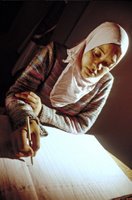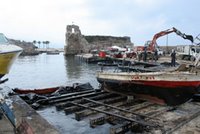 Those who were lucky to attend the 2-day Colloquium held yesterday and today at UNESCO Paris Headquarters have now a better understanding of what Islamic Feminism means.
Those who were lucky to attend the 2-day Colloquium held yesterday and today at UNESCO Paris Headquarters have now a better understanding of what Islamic Feminism means.
Islamic feminism refers to a discourse of educated urban women (and a few men) who re-read the Qur’an and early Islamic history to recuperate their religion from patriarchal and violent interpretations, to make the case for women’s participation and rights in a religious idiom, and to give theological legitimacy to the movement for women’s rights in the Muslim world. Islamic feminists claim the right to ijtihad along with the right to take part in prayers and even to lead prayers.
Along with Islamic feminists, many Muslim scholars are engaged in a kind of religious reformation, some of which is Quran-centered and some of which addresses issues such as Islam and democracy, Islam and human rights, and Islam, science, and philosophy. Thus Islamic feminism has arisen on the cusp of this new alternative formulation and religious reformation.
The emergence of such movement among other women’s movements raised the issue of the right to ijtehad (independent reasoning, religious interpretation), and the right of women to reinterpret Islamic law. Many Muslims are now searching for alternative ways to live their lives and organize their societies without compromising either their religious identity or their human rights.
Islamic feminism has become the guiding philosophy of women’s movements such as the Malaysian women’s group Sisters in Islam and the Nigerian women’s group Baobob, both of which are affiliated with the transnational feminist network Women Living Under Muslim Laws and work for gender equality and development.
For a list of suggested readings on Islamic Feminism, please visit the event schedule


